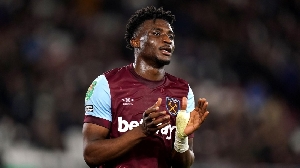While many of those who bask in the limelight enjoy it and its attendant glitz and glamour, media personality and mental health advocate, Abena Korkor, doesn’t see it as a glowing experience and describes it as not a “safe haven” for balanced mental health.
She explained that people in the spotlight mostly lose themselves as they make efforts to meet unreasonable expectations from the public.
In a chat with Graphic Showbiz on Monday, October 9, 2023, she said “people have spelt out what a celebrity should be like and so when you fall short of such expectations, you get the backlash for failing to meet their standards and you are not allowed to live your life.
“Being famous has affected my mental health immensely, mostly in a negative way, because Ghanaians are judgmental and they have very high expectations of what someone in the glare of publicity should or should not be.
“They don’t realise that we have our personal challenges and struggles.
It’s as if once you’re in the spotlight, you’re supposed to be flawless, and that’s very unfair.
“People should be allowed to be themselves, go through their struggles, and even if they make mistakes, they should be given the space to breathe,” she said.
Abena Korkor also noted that the judgmental nature of Ghanaians chastising her for deeds she mostly has no control over incites her mental breakdowns.
The graduate of the University of Cape Coast (UCC) argued that just like many others in the spotlight, she also works hard to maintain a facade of perfection while dealing with personal challenges behind the scenes, which has taken a toll on her mental health.
Abena, who is the founder of Psychosocial Africa, entreated society to be more compassionate and understanding, emphasising that public figures are just as human as everyone else.
World Mental Health Day was marked globally on Tuesday, October 10 to highlight mental health challenges and offer more education about the health condition.
For Abena Korkor, the day is perhaps not given much attention in the country and she is urging relevant stakeholders to take mental health advocacy more seriously and empower institutions to actively support it.
“Not enough has been done about mental health advocacy in Ghana.
However, NGOs and CSOs have done their part to some extent, and we hope to see more initiatives.
“Our media houses must continue to play a role in mental health advocacy, instead of just focusing on it during special occasions or when a high-profile story emerges.
“I also believe that if there is dedicated funding to support this cause, we can make significant improvements in our part of the world,” she added.
Source: GraphicOnline








